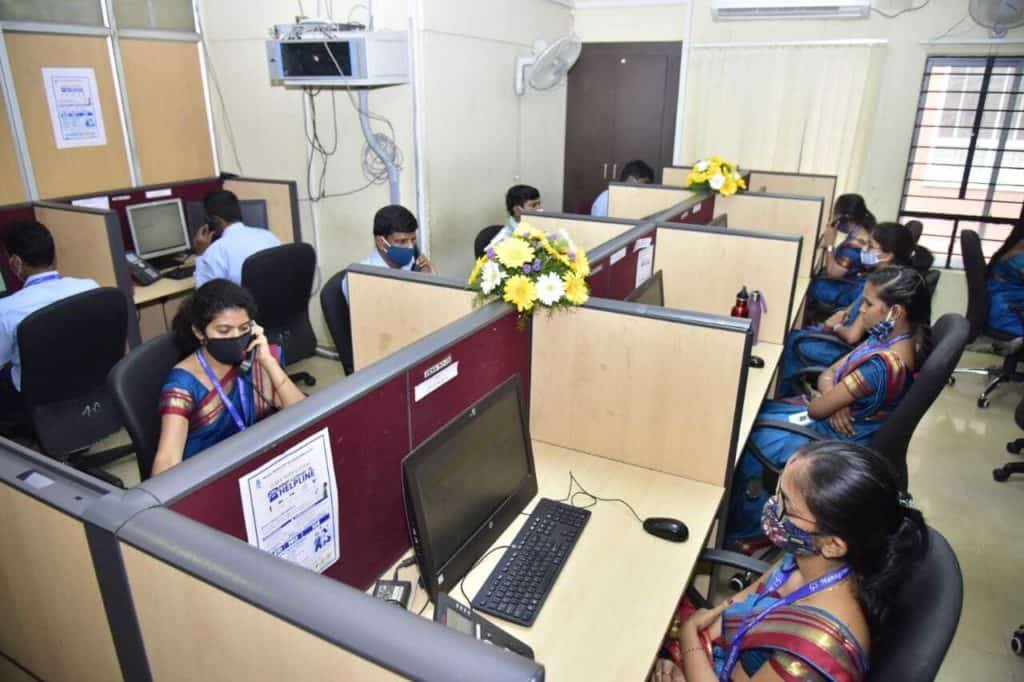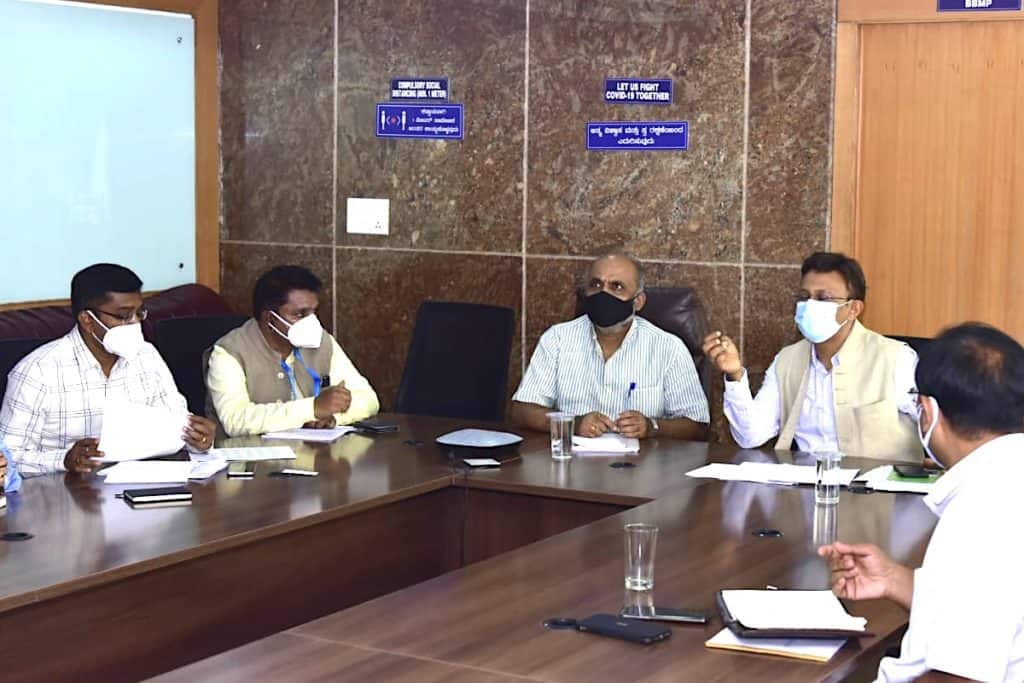A group of individuals and members of civil society organisations including Whitefield Rising, Bangalore Apartment Federation, and Sochara, have written to the Karnataka Chief Minister, BS Yediyurappa, highlighting major issues in COVID Management, with suggestions and asks for immediate steps. Here’s the letter
Dear Shri Yediyurappa,
Bengaluru urban and rural is in an extremely serious state with a large number of COVID patients in need of medical resources, from hospital beds, to oxygen infrastructure to ICUs and ventilators. Volunteers and family members of patients are making desperate calls and sending messages to find sources to help those in need. We are losing a large number of citizens, including young people to this killer virus.
As concerned citizens, we would like to share the key problems we see and some possible solutions, and offer our support to the government in resolving issues as soon as possible.
The challenges
- Multiple helplines, often hard to get through. Numbers include 1912, 108, zonal numbers, oxygen helpline etc. If people get 108 first, they take an ICU even if it is not required, since HDU beds/oxygen are harder to get.
- Information leads floating around online (Twitter, WhatsApp messages) are often not valid, leading to frustration. Volunteers or family members of patients are unable to get quick, ready-to-use information.
- Lack of clarity and transparency about SOP and protocols.
- Ownership and accountability: There are multiple officials in charge of different items and lack of clarity about their responsibilities.
- People are not getting any medical service without BU number, the time taken from SRF number to BU number on an average is 5 days.
- Meanwhile, we are getting distress calls from daily wage workers, and vulnerable communities for relief support. Children are in a vulnerable situation if all family members are hospitalized.
Read more: When and how to find a COVID bed in Bengaluru?
Civil society role
As civil society, this is what many of us volunteers have helped with:
- Supporting the government to prepare a unified database of information with verified details – coordinated by Sankalpa – https://karnatakafightscorona.org (Covid Resource Directory)
- Hundreds of initiatives for meals for COVID patients – free as well as charged
- Residents Associations including BAF are helping residents in distress, enforcing current curfew and protocols, scheduling vaccination camps etc.
- We are helping with government campaigns for masking and distancing, as well as citizen campaigns like Stop Spitting.
We are eager to help and fix other challenges too.
We ask that the government urgently implement the following measures:
Helpline and support
- One single number for all needs — with the number of lines scaled up to meet need — attended by trained triage volunteers or professionals. It would be good to inform callers requesting beds, how long they are likely to be in the queue (similar to what banks/service companies have!)
- Ward-level War Rooms — for local triage to quickly identify cases for home isolation or isolation at COVID Care Centres. This will reduce the load on the hospitals. PHCs can be upgraded to support them.
- Quick processing of test results — Ensure that test results reach ward-level triage rooms asap so the information can be passed on to patients immediately. Delays in getting test results is worsening the problem as patients are getting impatient and may also inadvertently infect others around them.
- Covid Care Centres at the Ward/Panchayat level for those from marginalised communities who are not able to isolate themselves at home

Communication
- Communicate and build confidence. BBMP Commissioner must hold daily online meetings open to all — press, public and RWAs (as has been done in the past) with latest updates – this can be streamed by media sites as well as television channels. Hearing regularly from top leadership in the local government can be a tremendous comfort factor and will assuage most concerns.
- Health advisories. There is an urgent need for credible and up-to-date health information to reduce the panic and get help faster. The government can nominate a trusted medical professional from its ranks, who can debunk false rumours and tell the public how to keep safe (on video format, multiple languages) on a daily basis.
- Transparency and accuracy of information. Proactively publish info on beds and other resources, regardless of whether the data indicates improvement or deterioration
- IEC campaign on vaccination. This can be done in a decentralised manner, with ward teams planning and executing vaccination camps. Vaccine stock logistics need to be ironed out in advance to prevent people from travelling to centres multiple times trying their luck.
Protocols and SOP
- Clarity in triage protocol. The details need to be clear, and accessible to all, and may be posted on the BBMP website.
- Mobile testing units. Allocate for all the slums and low income neighbourhoods and appoint a nodal officer for each slum to ensure testing and patients are given admission to COVID Care Centres for institutional isolation. Door-to-door testing can preempt issues in low-income localities.
- Separate testing centres from vaccination centres. This is critical to avoid risk of transmission
Read more: Nodal officers appointed for COVID orphans, ICU beds, corporate aid

Strengthen governance
- Activate ward/panchayat committees and their disaster management cells. For local awareness drives, vaccination, and as the situation unfolds, distribution of ration and food as needed in each of the wards. CSOs and RWAs can then be working alongside the local ward committee. Ward/panchayat teams can also support frontline workers including pourakarmikas with transport facilities, protective gear, and food arrangements.
- Clear accountability. Have similar accountability and ownership structures drawn out at zonal levels, percolating to citizen engagement at ward levels. Make Zonal Commissioners and Joint Commissioners liable and responsible for execution. in cases where it is not possible to leave children alone.
- Enabling universal vaccination. Strengthen PHCs and ensure a systematic process and availability of personnel to support free vaccination programmes.
- Don’t reinvent – reuse the expertise and process/systems built during the first wave to gain execution momentum, new people/new processes/new protocols are slowing the whole approach and additionally creating confusion. Many citizen volunteer groups and civic organizations were active in every zone last year – bring them back to support.
Civil society of Bengaluru is already deeply involved in relief activities. But it is difficult to understand who is doing what, and where citizen volunteers are most needed, what skills and capacities are lacking. We request BBMP calls for a meeting to discuss these issues.
We look to the government for providing decisive leadership and working with citizens to resolve this crisis on a war footing.
– Concerned Citizens of Bengaluru
Suggestion on unlock. For Major cities like Bangalore entry and exit by road can be limited to few routes say 4 ( from east west north south 1 each) for people to transit for work, business, sale of farm products etc and do rapid tests or such other test at these entry exit points in order to control / prevent re increase. Vaccinated personnel can have free entry exit. This can be thought of till such time a major population is vaccinated